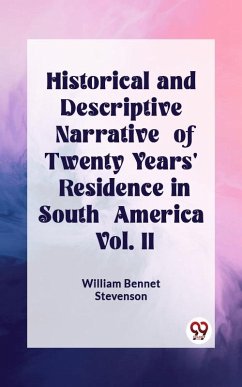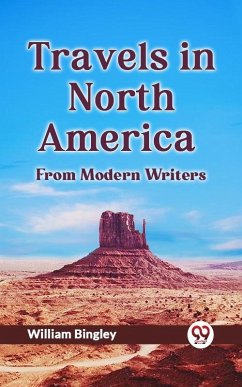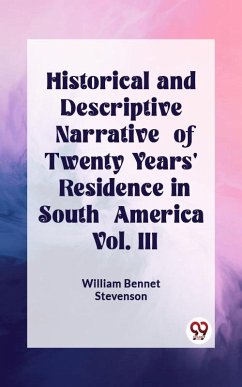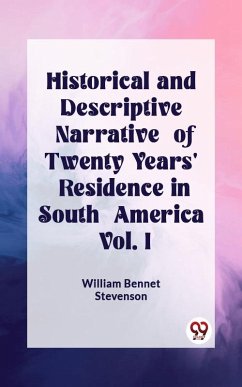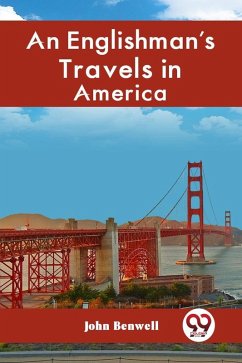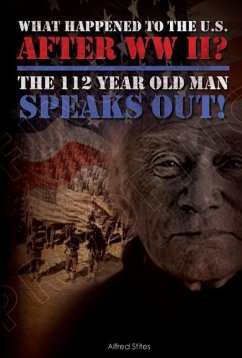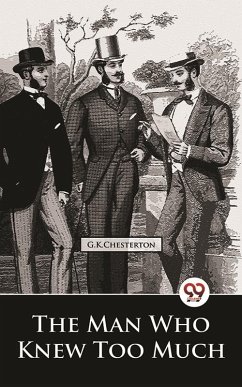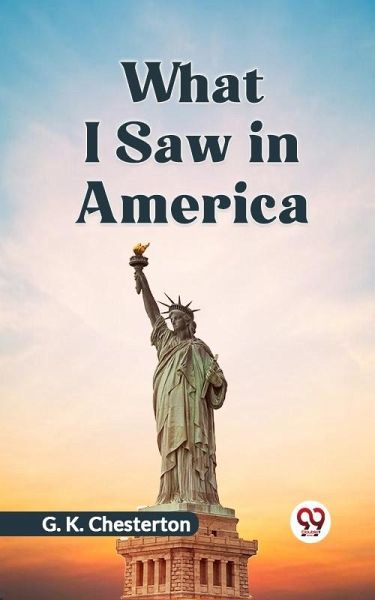
What I Saw in America (eBook, ePUB)
Versandkostenfrei!
Sofort per Download lieferbar
Statt: 25,99 €**
0,49 €
inkl. MwSt.
**Preis der gedruckten Ausgabe (Broschiertes Buch)
Alle Infos zum eBook verschenkenWeitere Ausgaben:

PAYBACK Punkte
0 °P sammeln!
"What I Saw in America" is a group of essays by using the famend ENG author G. K. Chesterton, providing his eager observations and reflections at the United States in the course of his go to inside the early Twenties. Chesterton, celebrated for his wit and highbrow intensity, brings a completely unique and sometimes paradoxical attitude to his analysis of American society and tradition. Throughout the ebook, Chesterton engages with the American spirit, democracy, and the exceptional characteristics of the state. He expresses admiration for the American commitment to liberty and individualism w...
"What I Saw in America" is a group of essays by using the famend ENG author G. K. Chesterton, providing his eager observations and reflections at the United States in the course of his go to inside the early Twenties. Chesterton, celebrated for his wit and highbrow intensity, brings a completely unique and sometimes paradoxical attitude to his analysis of American society and tradition. Throughout the ebook, Chesterton engages with the American spirit, democracy, and the exceptional characteristics of the state. He expresses admiration for the American commitment to liberty and individualism while simultaneously critiquing the potential pitfalls of immoderate materialism and the erosion of cultural historical past. Chesterton's writings offer a nuanced and frequently funny portrayal of America's political landscape, societal values, and its rapid industrialization. He appreciates the diversity and dynamism of america but also voices worries about the risk of homogenization and the loss of historical and cultural identification. Remains a precious ancient document that gives insights into America's past and a perspective from a foreign observer. Chesterton's distinctive style, marked by using paradoxes and witty prose, makes "What I Saw in America" a fascinating and idea-provoking examine for those interested in early 20th-century America and the complicated interaction of its strengths and demanding situations.
Dieser Download kann aus rechtlichen Gründen nur mit Rechnungsadresse in A, B, BG, CY, CZ, D, DK, EW, E, FIN, F, GR, HR, H, IRL, I, LT, L, LR, M, NL, PL, P, R, S, SLO, SK ausgeliefert werden.






